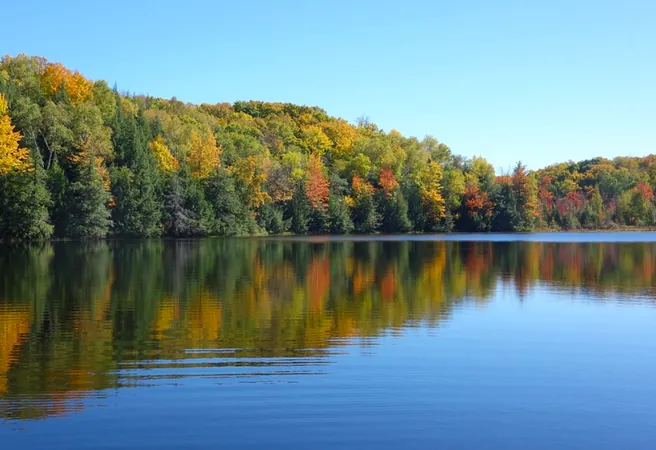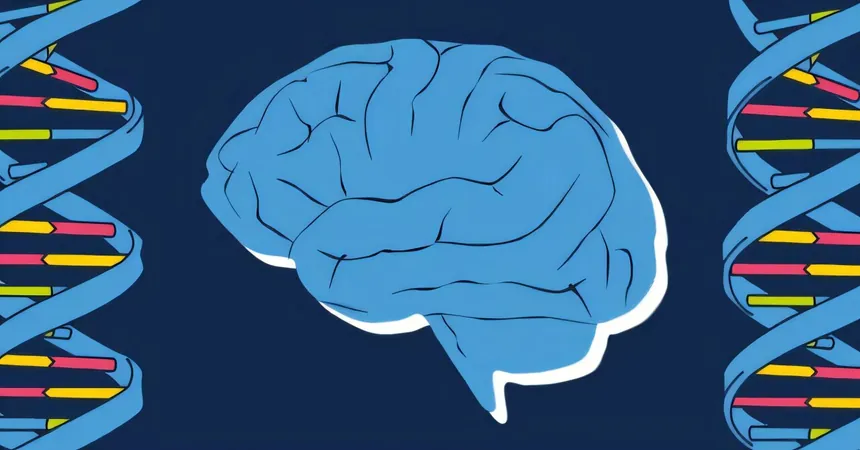
Incredible Discovery: Lake Bacteria Evolve with the Seasons!
2025-01-07
Author: Li
Introduction
Researchers have made groundbreaking observations regarding the remarkable adaptability of bacterial cells. These microscopic powerhouses can share genes, transfer 'memories' to their offspring, and undergo significant evolutionary changes to thrive in varied environments. A new study highlighted in Nature Microbiology reveals that bacteria in Lake Mendota, Wisconsin, quickly evolve to tackle the extreme weather fluctuations that come with each season.
The Unique Environment of Lake Mendota
Lake Mendota is a perfect natural laboratory, experiencing considerable seasonal transformations—booming with algae during the sweltering summer months and freezing over in the frigid winter. This potent dynamic creates a battleground where different microbial species compete for dominance based on the changing conditions.
Resilience of Bacterial Communities
What sets Lake Mendota apart is the resilience of its bacterial community, which showcases a unique ability to adapt as the seasons change. An impressive analysis of 471 water samples collected over two decades allowed researchers to paint a comprehensive picture of how the microbial community shifts over time. This monumental study represents the longest metagenomic time series ever recorded in a natural habitat.
Insights from the Research
Though individual bacteria have a short lifespan, often just a few days, researchers discovered that the lake's microbial populations maintain gene variants that manifest at different levels and patterns depending on the season. Year after year, hundreds of microbial species reemerge in nearly identical forms, mimicking generations of their ancestors.
Perspectives from Researchers
I was astonished at the extent of these seasonal changes within the bacterial community," said Robin Rohwer, the lead author and postdoctoral researcher at The University of Texas at Austin. 'I anticipated observing a few interesting examples, but we found literally hundreds.'
Brett Baker, a senior author on the study and Associate Professor at the same university, proclaimed, 'This study is a total game-changer in our understanding of microbial community dynamics across time. It represents just the start of what these insights will uncover about microbial ecology and evolution in natural settings.'
Impact of Abnormal Events
Interestingly, the study noted abnormal events, such as the year 2012 when the ice melted prematurely, followed by an unusually hot and dry summer. This led to a decrease in water levels input into the lake, which prompted a significant realignment in bacterial gene expression. As a result, the nitrogen metabolism within these microbes altered at a genetic level, likely due to reduced availability of organic nitrogen.
Future Concerns and Hope
Looking forward, researchers express concern about climate change impacting long-term weather patterns and triggering unpredictable weather events in the future. However, they remain hopeful that these resilient microbes will continue to adapt to both gradual shifts and sudden changes in their environment, showcasing nature's incredible capacity for resilience.
Further Research
Additionally, a concurrent study published in Nature Microbiology has expanded upon this research by examining changes in the viriome, or viral community within the same lake samples. The continued exploration of these microbial ecosystems promises to shed light on the intricacies of life on Earth and the resilience of nature in the face of climate challenges.
Conclusion
Stay tuned as we delve deeper into this captivating realm of microbial evolution and discover what other secrets Lake Mendota's tiny inhabitants hold!



 Brasil (PT)
Brasil (PT)
 Canada (EN)
Canada (EN)
 Chile (ES)
Chile (ES)
 Česko (CS)
Česko (CS)
 대한민국 (KO)
대한민국 (KO)
 España (ES)
España (ES)
 France (FR)
France (FR)
 Hong Kong (EN)
Hong Kong (EN)
 Italia (IT)
Italia (IT)
 日本 (JA)
日本 (JA)
 Magyarország (HU)
Magyarország (HU)
 Norge (NO)
Norge (NO)
 Polska (PL)
Polska (PL)
 Schweiz (DE)
Schweiz (DE)
 Singapore (EN)
Singapore (EN)
 Sverige (SV)
Sverige (SV)
 Suomi (FI)
Suomi (FI)
 Türkiye (TR)
Türkiye (TR)
 الإمارات العربية المتحدة (AR)
الإمارات العربية المتحدة (AR)